In 2015, thanks to a very kind introduction from Marvel Talent Relations Manager Rickey Purdin, I was invited to be a guest at Comics Uncovered, an intimate aspiring comic creator seminar attached to Birmingham, UK’s International Comic Expo. I was being flown out to do portfolio reviews and hang out and talk comics—it seemed too good to be true. Feeling guilty about being flown across the globe and put up in a hotel in order to do a few hours of portfolio reviews, I suggested: “I can do a presentation or something. I want to earn my keep.” My gracious host Shane Chebsey*, the show organizer, was delighted to take me up on that offer, so I set about hastily putting together a presentation on a topic that I, as an editor, get asked about most frequently: breaking into comics. Thanks to the tireless talents in Dark Horse’s design department, my slapdash** ideas were stylishly and swiftly converted into a Powerpoint presentation and I headed to England to preach to a young, impressionable group of writers and artists. I think it all went pretty well, so I’ve taken the time to update my talk (trying to keep the conversational tone in which it was originally presented) and post it here in the hopes it can, in some small way, aid the burgeoning careers of any up-and-coming comic talent looking for some advice.
——————————————————-
Breaking In: Advice on Starting a Career in Comics
You’ve got the skills and a great idea for a comic, but what comes next? Join Dark Horse editor Jim Gibbons for a presentation and discussion on beginning a career in comics, pitching your book, talking to editors, and promoting your work on social media.
First, a preamble that doubles as a caveat to this presentation…
I’m going to give you a lot of advice here today. But, keep in mind, it’s only one professional’s opinion. If you take anything away from my talk, it should be this: There is no right way to get into comics. There are many different ways to break into comics—some better than others. Many of those options may be the “right” way, but that will vary based on who you are and what you’re trying to do in comics. The one constant that you can’t avoid, however, is hard work. So if you don’t like any of my suggestions, work hard in your own way and it should work out.
So, on to all that advice I mentioned…
What’s the best way to get into comics?
When you boil it down, it’s actually this simple: Do the work. And work hard.
Comics is a profession. It’s an art form, but it’s commercial art. It’s a job. Like most jobs, if you want to apply, you need a resume. (Or a CV or whatever you call them over here.) In the field of comic book publishing, your best resume is a comic. That’s not to say that a script or a piece pinup art won’t get you work. It certainly might. But those are only a part of the final product, not the whole thing. Scripts take a long time to read. Pinups only showcase a single image and comics are the art of sequential storytelling. An actual comic is your best foot forward.
Here’s a secret: editors, the people that are going hire you—we’re fucking busy. I’m working on around 30 to 40 projects (around 45 to 50 hours of work a week, if not more) in various states at any given moment, and I’m not the busiest editor in the game. But here’s another secret: We editors are in comics because we love comics. That means we love reading comics. So, you want to show us your talent? Give us a comic to read. We read comics quickly and can easily pinpoint what we like and don’t like when we see it on the page. Allow us to efficiently assess what you can do and it’s that much more likely we’ll have time to give you feedback, or even better, we might see something that makes us say “I like it… Show me more.”
Which bring us to the next tip…
You want to break in to comics? Make comics.
If you’re a writer and an artist, you’re lucky. You’re the creative team. Now get to work. If you only write or if you only draw, well… You have your work cut out for you. You need to do the work, but you also need to find collaborators. And that might take time. So, it’s time to network. Set up a twitter account, a tumblr blog, or a Facebook page and start posting your work and engaging with fellow comics creators—social media is important. Comics is a freelance industry. The majority of comics business is done via phone and email. Digital presence is key. And do not forget: Make sure it’s easy for people to contact you. List your email address on your blog.
That said, it’s not just about social media. Networking is about actual social interaction, as well. This, for many of us, is not always easy. Traditionally, we comics folk are the indoor kids. But comics is a team sport and you need teammates to make comics, so… You have to find your team somehow. Go to conventions whenever financially possible. Look for comic creator events in your local area. Meet people. Make connections. Find collaborators. Right now, in this room, there are writers in need of artists and vice versa. Leave today with a few email addresses and start talking about something the two (or three) of you can collaborate on.
Okay… got it? Great. On a number of levels, as I said, it’s that simple. Just remember, there’s no right or wrong way to get into comics, just a lot of options. For example, some people are very talented and very lucky (aka they have real good timing) and, if you’re like Noelle Stevenson you can go from art school tumblr fame straight to a book deal at Harper Collins. That’s like winning the lottery. It’s not the norm. It happens, but rarely. That’s not to say that she didn’t earn every bit of her success—she absolutely did. She is very talented and, I have no doubt, works extremely hard. My point is: The skyrocket to success is rare in comics. One of my favorite old Wizard magazine profiles talks about the day Keith Giffen realized he was done selling vacuums door-to-door and wanted to make a go at comics for a living. Another route. I’ve always found the old chestnut about how Jack Kirby didn’t create the Fantastic Four until he was forty-four years old inspiring, comforting, and educational. And he’d been in the comics game years before that massive success. Again, many routes.
That’s the thing I think people don’t talk about enough, the thing people looking to get into the comics business can really benefit from: How people working in comic book publishing actually did break into comics. So, here’s how a few friends of mine and I broke into comics. Just four of hundreds of potential ways into the field.
My comics career trajectory has been, in a way, more “professional” than many. Meaning I had jobs with salaries that allowed me entry into the world of comics. Many, many more people work freelance gigs on their way to a comics career, one which may remain freelance for most or all of their careers. The comics day job with an office, salary, and health benefits is not the norm. But, it is an example of how to break in, going from journalism to publicity to editing—just one route to consider.
Also, note the beginning of a trend you’ll see here: breaking in to comics takes time. It took me four years to get to the point where I was working on comics and another four to hit the point where anyone would be interested in my take on breaking in to this industry. Right around that decade mark of hard work is where you begin to see people hit their stride, I think.
Another example of a more “professional” route. Writing and editing every single day while working around comics not only helps keep your skills sharp, it also helps build the networks you need to begin getting your work in front of editors. Relationship building is key, be it with publishers or fellow comics creators. If you can work in a role that allows you frequent access to the comics community, a la as an entertainment or comics journalist, you may be able to knock out a few birds with one stone—day job paychecks earned and writing skills practiced while you build your comics networks.
Caleb’s take on the comics career is also one I highly recommend—especially for writers. If you don’t have to quit your day job, don’t quit. Steady income and, especially, health insurance are important. A career in comics might be your end goal, but going broke isn’t going to help you achieve it. If you want to quit your day job in order to pursue comics, don’t do it immediately. Working on a miniseries at a publisher may mean you have broken in, but it doesn’t mean you’re guaranteed steady income after that job is done. To paraphrase a quote that I attribute to a tweet from writer Donny Cates: it’s easier to break into comics than it is to become a break out success. We’re talking about getting into a comics career here, but these things are intertwined. Keeping a day job that allows you to take the right comics job is going to help you begin a lasting career in comics. Quit that day job too soon and you may be scrambling for whatever gig you can get, which quite frankly can taint your personal brand. I know we’re all here for the love of comics, but comics is a commercial art form—it is a job. Be patient, be smart, and approach it like you would any professional move.
When I reached out to folks for info on their comics careers, Joshua Williamson had the most thorough rundown because, as I learned, he regularly keeps track of his career. It’s a smart move and a good way to make sure you are working toward your goals. And, as you can see, I think it’s very much helped Josh reach his current level of success.
Again, on these slides, you’ll see that it took Josh about eight years to start talking to a Big Two publisher, and another two—and a lot of self-publishing—before that conversation became a steady gig. Again, it’s about a solid decade of work to really start to see what I think most people think of as traction in a comics career. This isn’t a “get rich quick” job, it’s not even a “get rich” job. It takes time. It takes commitment. But, the great thing you can see on Josh’s timeline: that commitment pays off. Talking with Josh once, he broke down one of my favorite explanations of how a comics career is built. I’m paraphrasing, but it broke down to this: Each job is your pitch for the next job. Each comic you make is a stepping stone to the next comic you make. It’s not about a single hit and then you get to call all your own shots. It’s about doing quality work that leads to the next quality job. Note that quote on the slide: “Finally feel like I’m slowing figuring this writing thing out.” That’s after 12 years of comics work. There’s always more to learn. Put one foot in front of the other. Kill it on your current project and use that to kill it a bit more on the project. Rinse and repeat till infinity.
Cue the broken record: What do you see here? Once again, we’re looking at about a ten-year span here. It takes time. It takes work. It takes commitment. I wanted to get an artist example in the mix on these, and while Ulises is a writer/artist, he started breaking in due to his art chops. He once told me that around the time he got the Transformers gig he did an analysis: Based on the money from that gig and conventions, he realized that he could make a go at quitting his day job. (Keep in mind, a single writing gig pays far less than an art gig—it also takes more time, so juggling two jobs is a greater challenge based on the art hours needed.) It’d be tight, but he did the math and gave himself a time frame in which to go all in. And that decision was part of his five and ten year plans. Ulises is always writing and drawing, so do not underestimate the hustle that was necessary for this plan to work. But, end of the day, the commitment and work (lots and lots of work) toward these two plans led to the end goal being achieved.
Hopefully these examples help you all better understand a few of the many routes into comics. As I said, there’s no right way, but I do hope seeing a breakdown of a few different ways helps to inform your choices in a positive way as you work to break in.
While I do believe that the best way to break into comics is to make comics—which usually begins with self-publishing—hard work and talent alone may get you an in, but where do you go from there? Here are some tips that should help make your eventual interactions with editors more successful.
I’ll go through these one by one…
Start small: Reading comics is fast, reading scripts and/or massive manuscripts is slow. Editors may have time to speed through a short story or even a single issue, but we don’t have time to comb through your thousand-page magnum opus. Regular updates are fine if you have good rapport with an editor, but don’t expect them to dig in to every graphic novel pdf you send along. Short samples are samples that are more likely to be read.
Be Patient: If it’s behavior that wouldn’t be successful during online dating, don’t do it. Don’t email a few times a day. Don’t call out of the blue. Don’t email to make sure someone got that last email. I know the ol’ “I was having some server trouble, just wanted to make sure that email got through” line seems bulletproof, but when you’re an editor who’s read it from twenty people trying to pitch you, you catch on. Unless you’re on very, very good terms with an editor, I’d recommend keeping your email check-ins quarterly. Unless, of course, you get a response. In which case, email us back promptly, please.
Be easy to contact: This one should be obvious and I mentioned it before, but take the guess work out of getting in touch. If you have a blog, have a contact page. If you have a twitter, link to the website with the contact page. Keep an eye on your direct messages on Twitter. The last thing you want is that editor who loves your work to be unable to reach you!
Forget talent: I once made this joke at a breaking in to comics panel and it fell very, very flat. But, I stand by the advice! One of the most frequently doled out bits of paraphrased comics advice is this: “Be fast, be easy to work with, or be talented. Combine two of those three and you’ll succeed.” In short, if you are nice and fast, you’ll get work. Or, if you are fast and talented, you can get away with being a jerk. My version of this advice: forget about talent. Focus on being timely and being easy to work with. If you rely on talent to get by, well… Hey, it might work! But why not hedge your bets? Focus on being timely with your work, and you’ll be completing so much work that your talent should increase. And why not be nice along the way? Editors, other creators, and fans, we all like nice people. They are so much more fun to work with and to support!
Put yourself in a position to succeed: A lot of young, talented creators work very, very hard and then—suddenly—something clicks. A tumblr post goes viral or maybe a Kickstarter gets an amazing and unprecedented amount of support. Then, all of a sudden, the job offers start rolling in. Fellow creators want to collaborate, editors have anthology spots that need to be filled with fresh talent, and that one artist on that book you love just broke his arm—there’s an opening! Working freelance, it’s tough to know where the next paycheck may come from. So when it rains jobs, some people grab a bucket and try and collect them all. If you’re incredibly fast, work 24 hours a day, and forsake all forms of social life, then you’re good to hit your deadlines on the twelve projects you just said “yes” to. But, if you’re human, pace yourself. Hitting deadlines and delivering on time is not just going to make a fellow creator or an editor like you, it’s going to make them want to work with you again. And word gets out. Blow off a few gigs or deliver them super late and pretty soon less people will be reaching out to sign you up for projects. Remember, comics is a job. People who hire you need the job done. If you can’t deliver on time, you better be real nice and really, really talented.
Be smart financially: That’s how important this one is—I’m mentioning it again. Creating comics from the back of your car might make for a good chapter in your autobiography, but it’s stacking the odds against you. Having a steady paycheck that keeps the lights on, keeps you fed, and allows you the comfort to produce good work is key. Don’t give that up until you’ve got a few gigs lined up and those odds are stacked in your favor. Don’t forget: comics is about the long game. If you want to succeed, it’s not just about the next six months, it’s about the next six years. Take care of yourself so you can take care of your comics career.
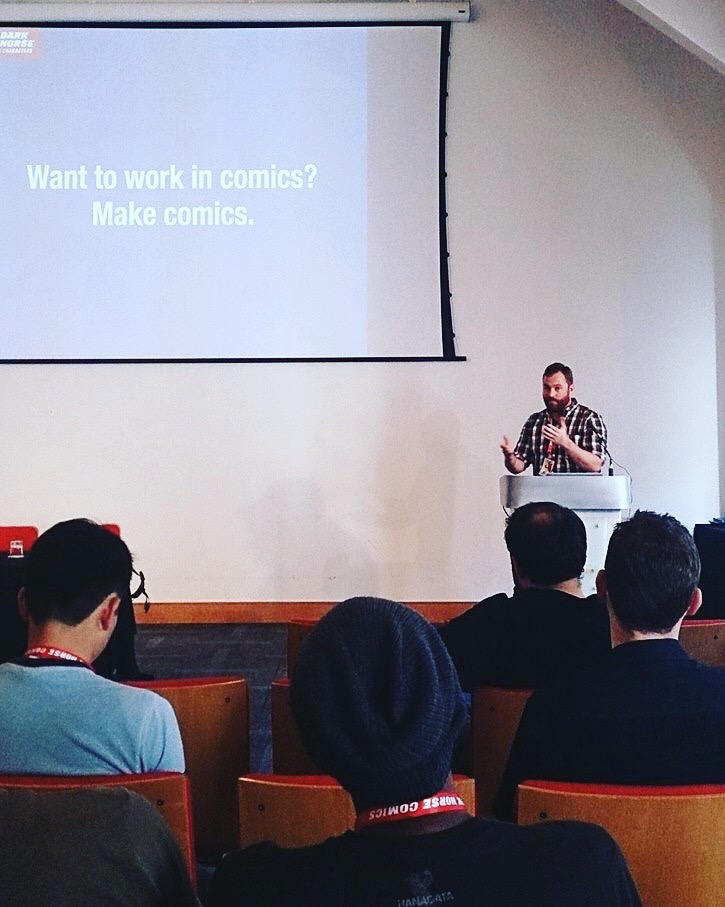
——————————————————-
*The staff at ICE and Comics Uncovered were all amazing. Another big, huge thanks to all those lovely folks who made it a fantastic trip and a really fun seminar.
**I reached out to other comic book professionals in the short amount of time I had to put the original presentation together. Many were unable to whip me up a timeline on short notice. The fast approaching deadline and quick turnaround this presentation needed are the only reasons female creators were not included. I plan to revise this presentation in the future and add more artists, more colorists, more letterers, and more diversity to my examples.
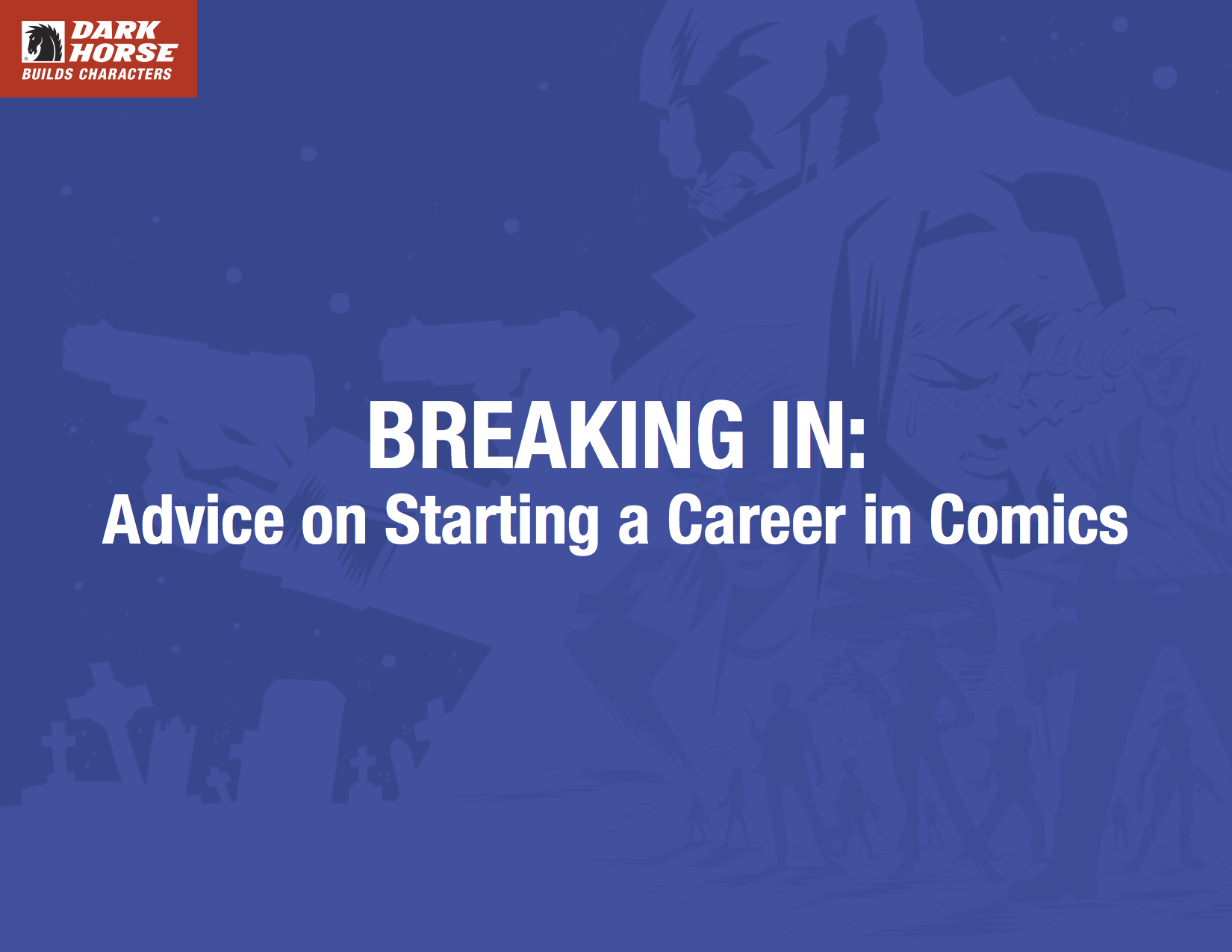
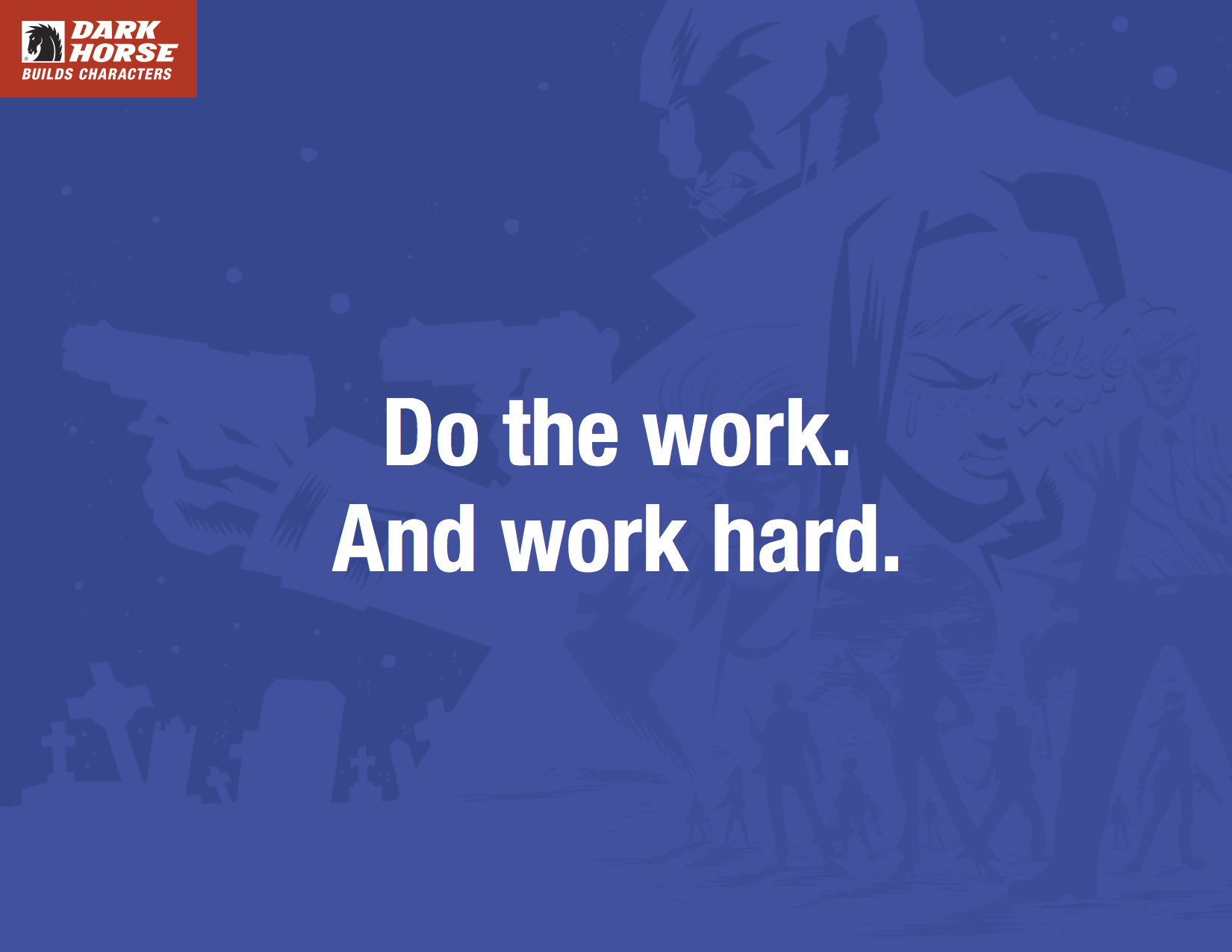
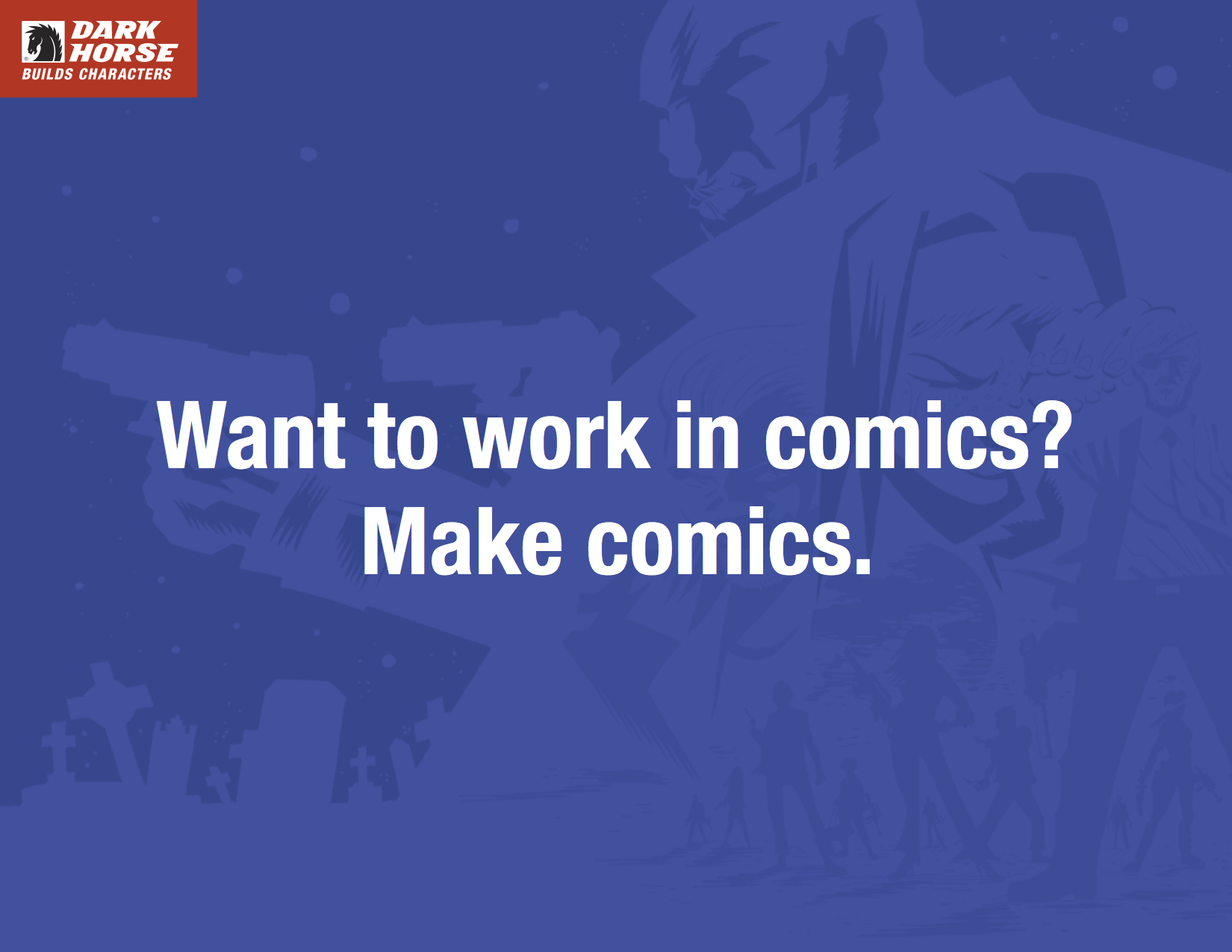
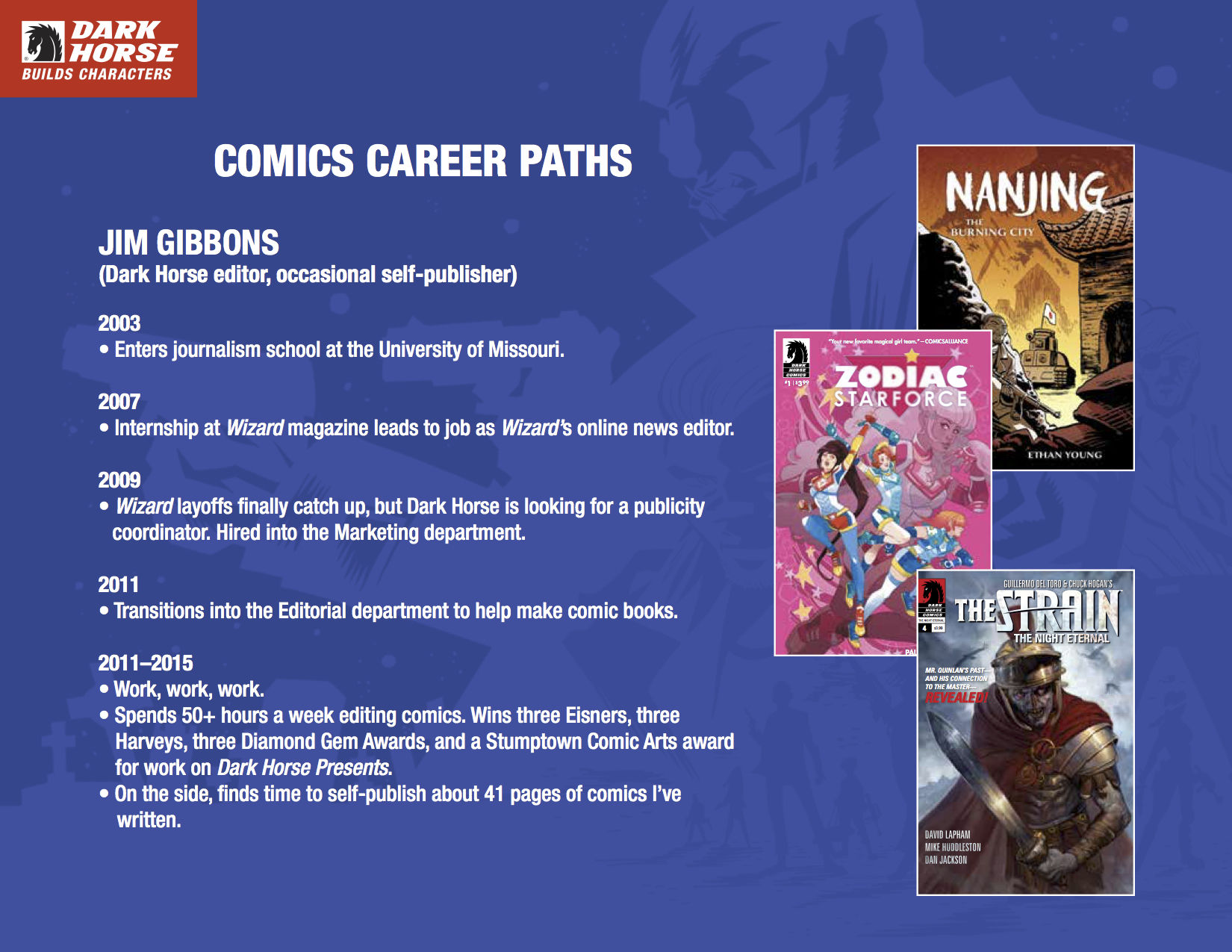
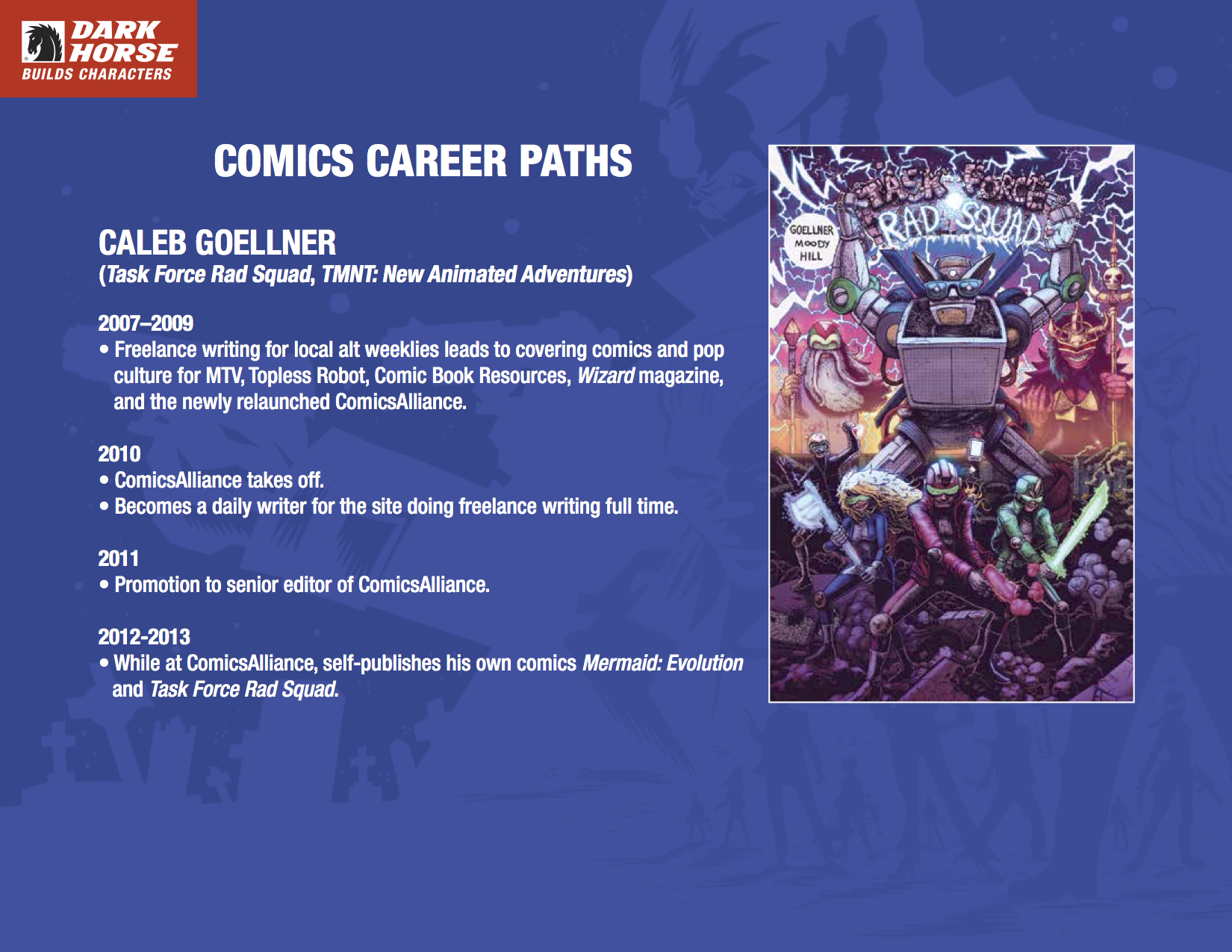
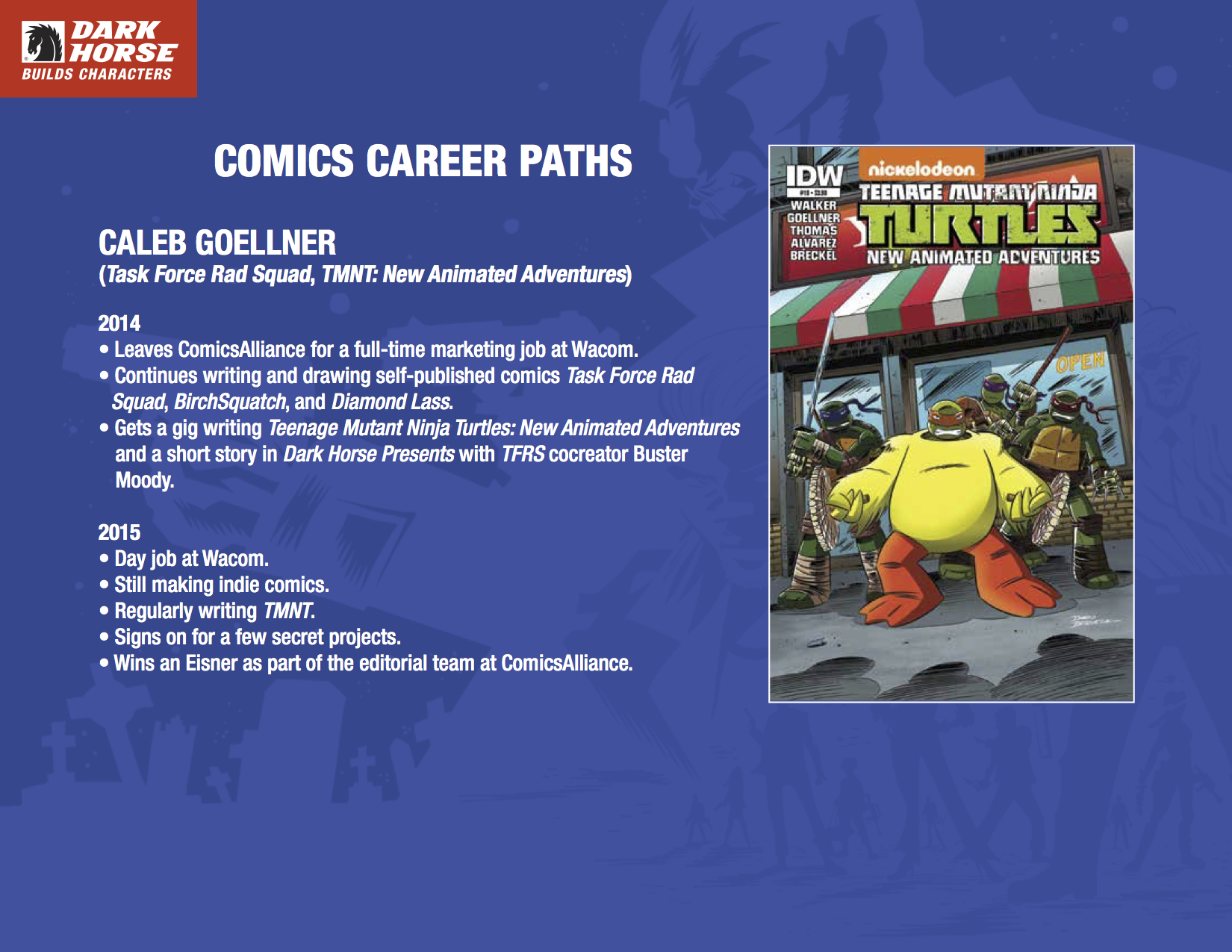
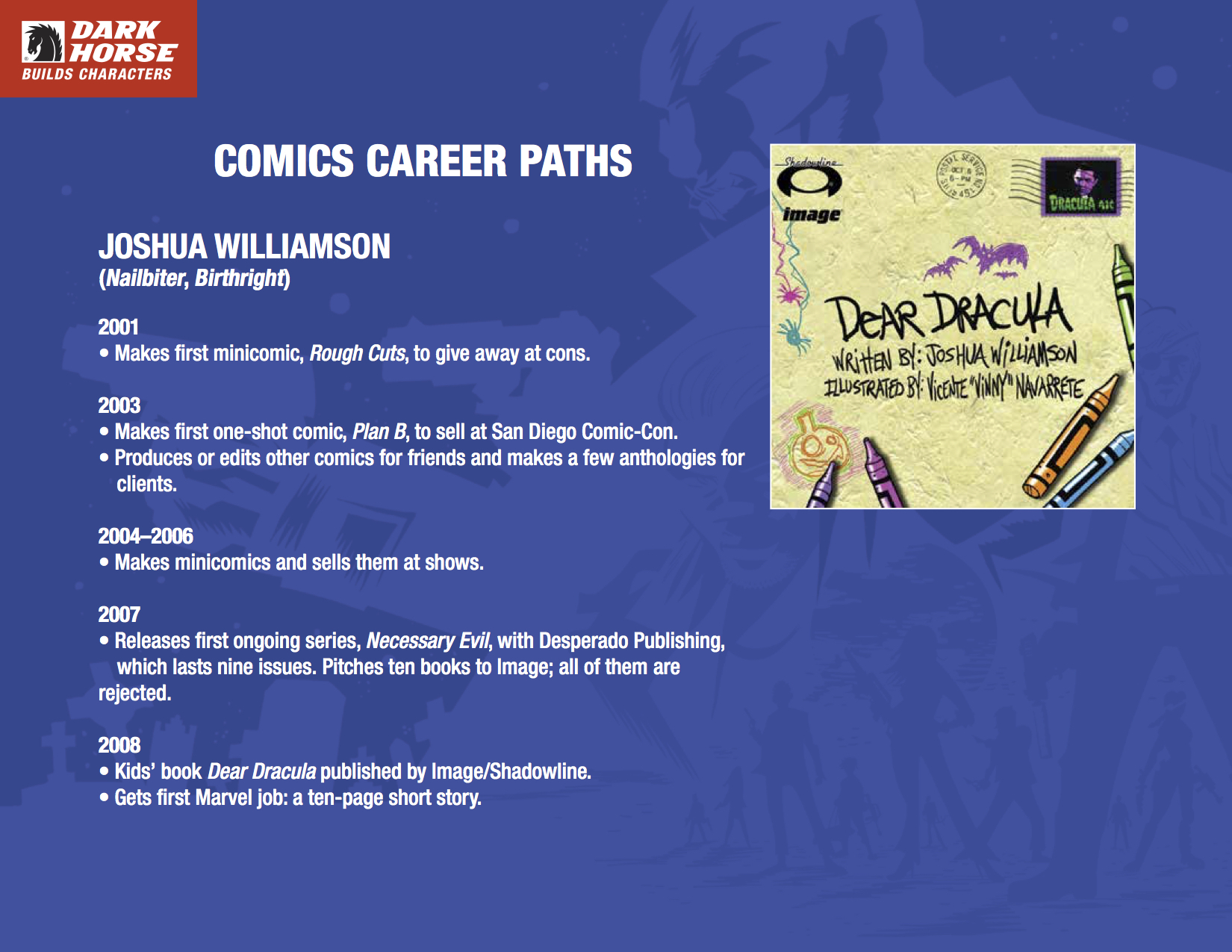
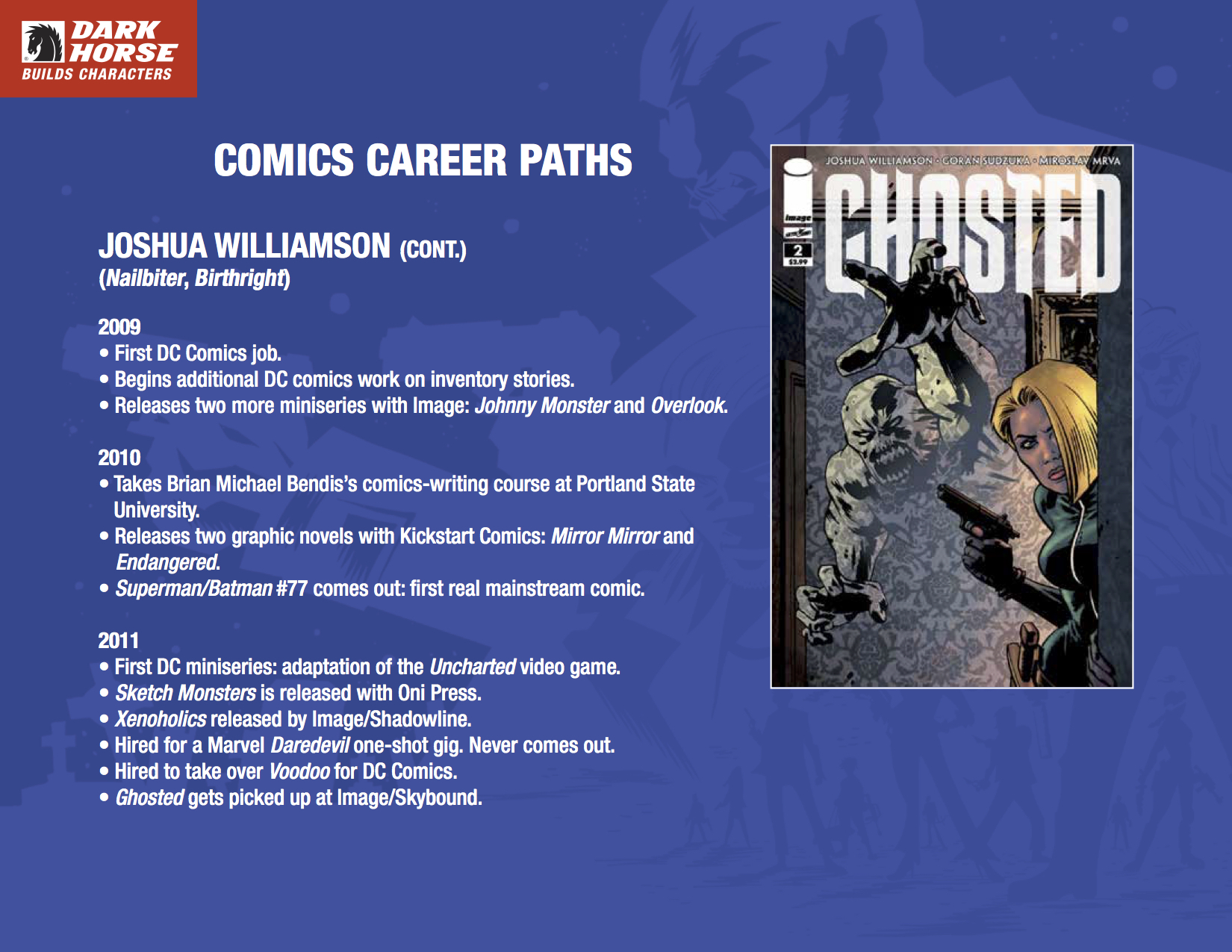
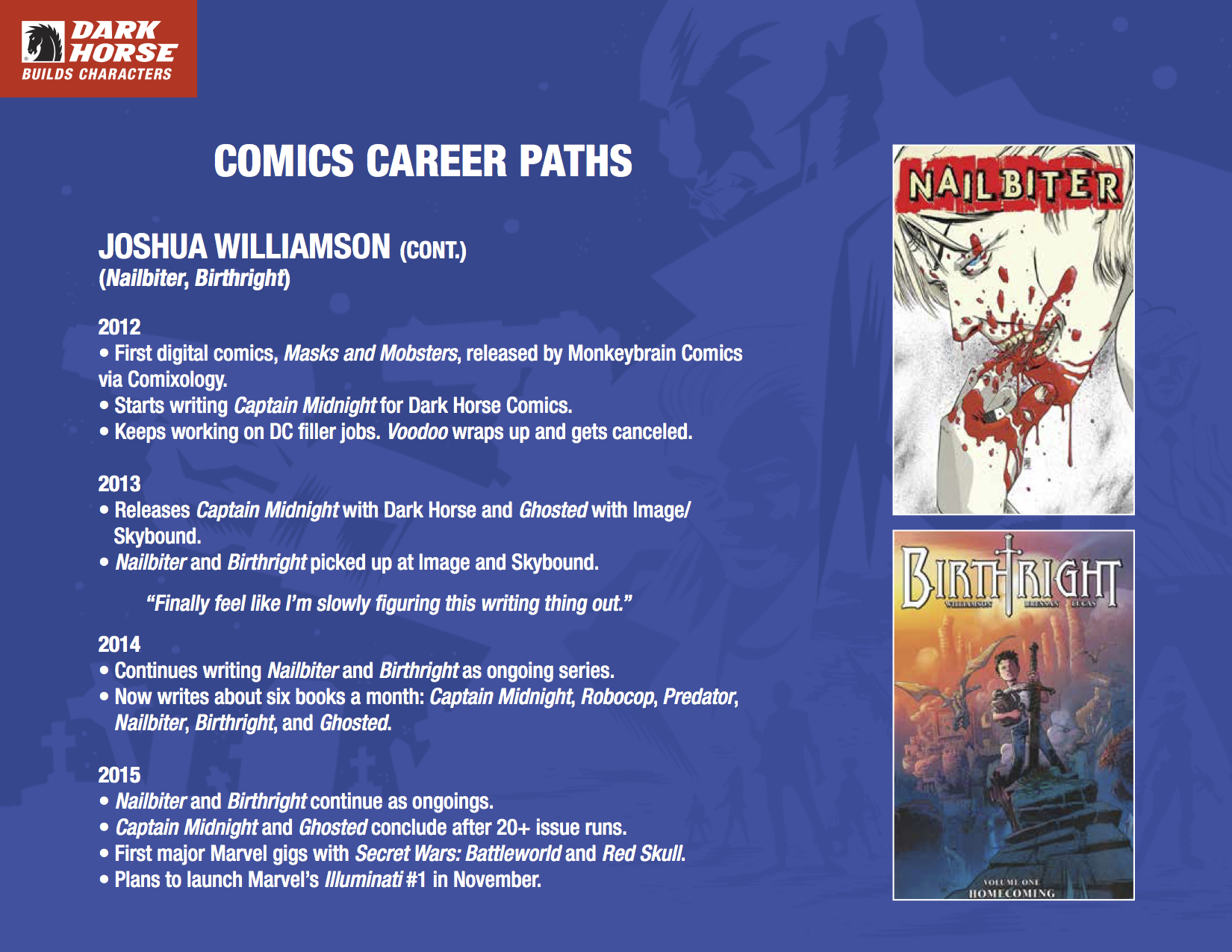
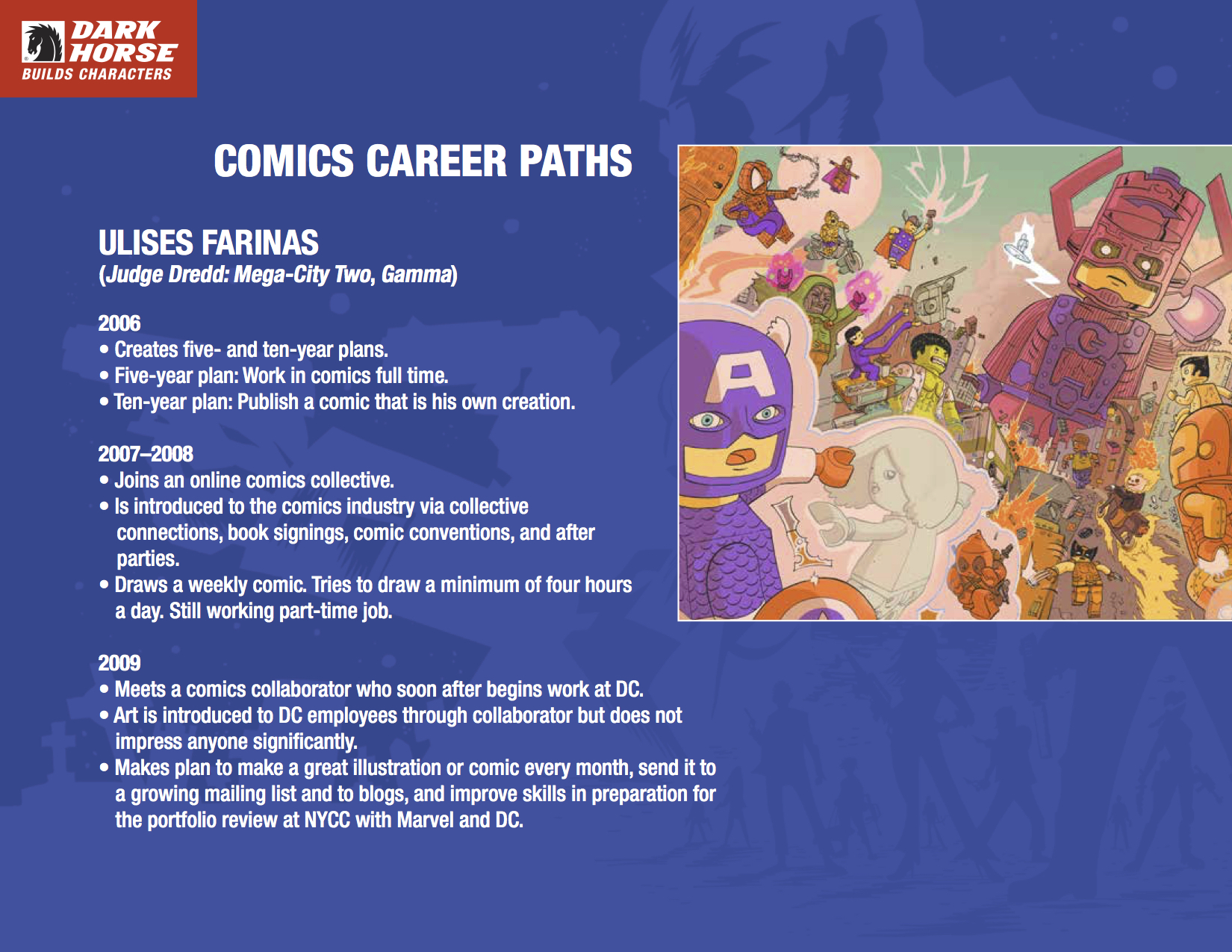
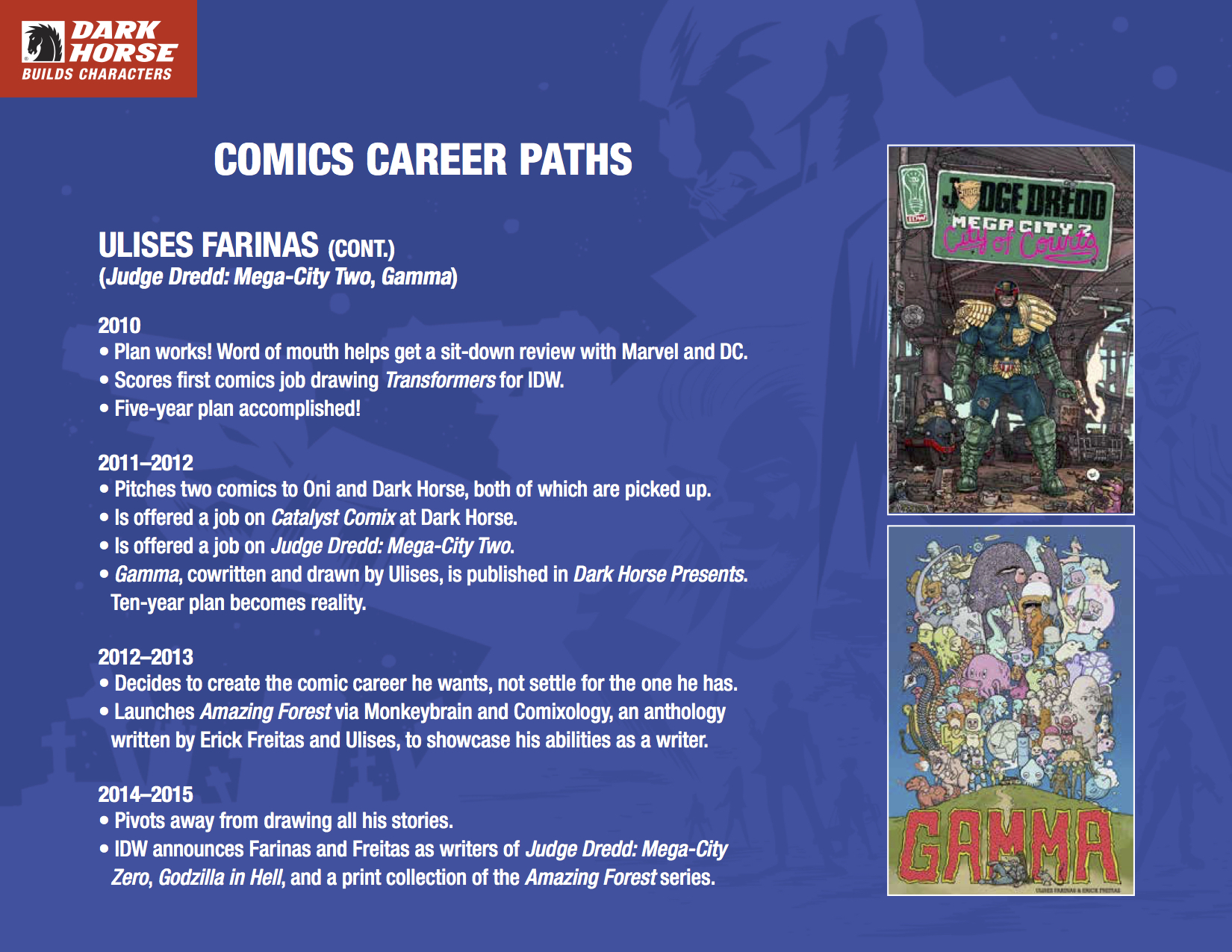
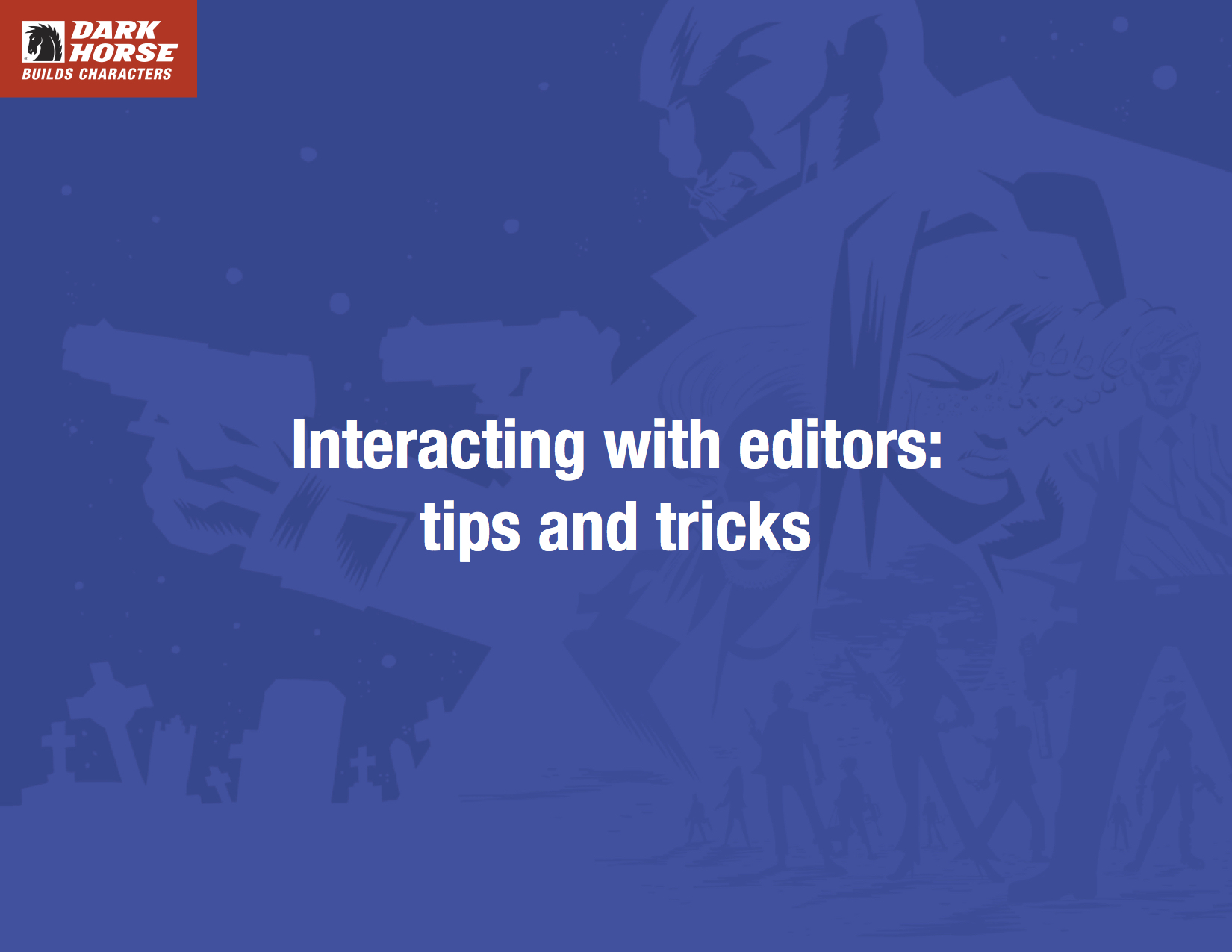
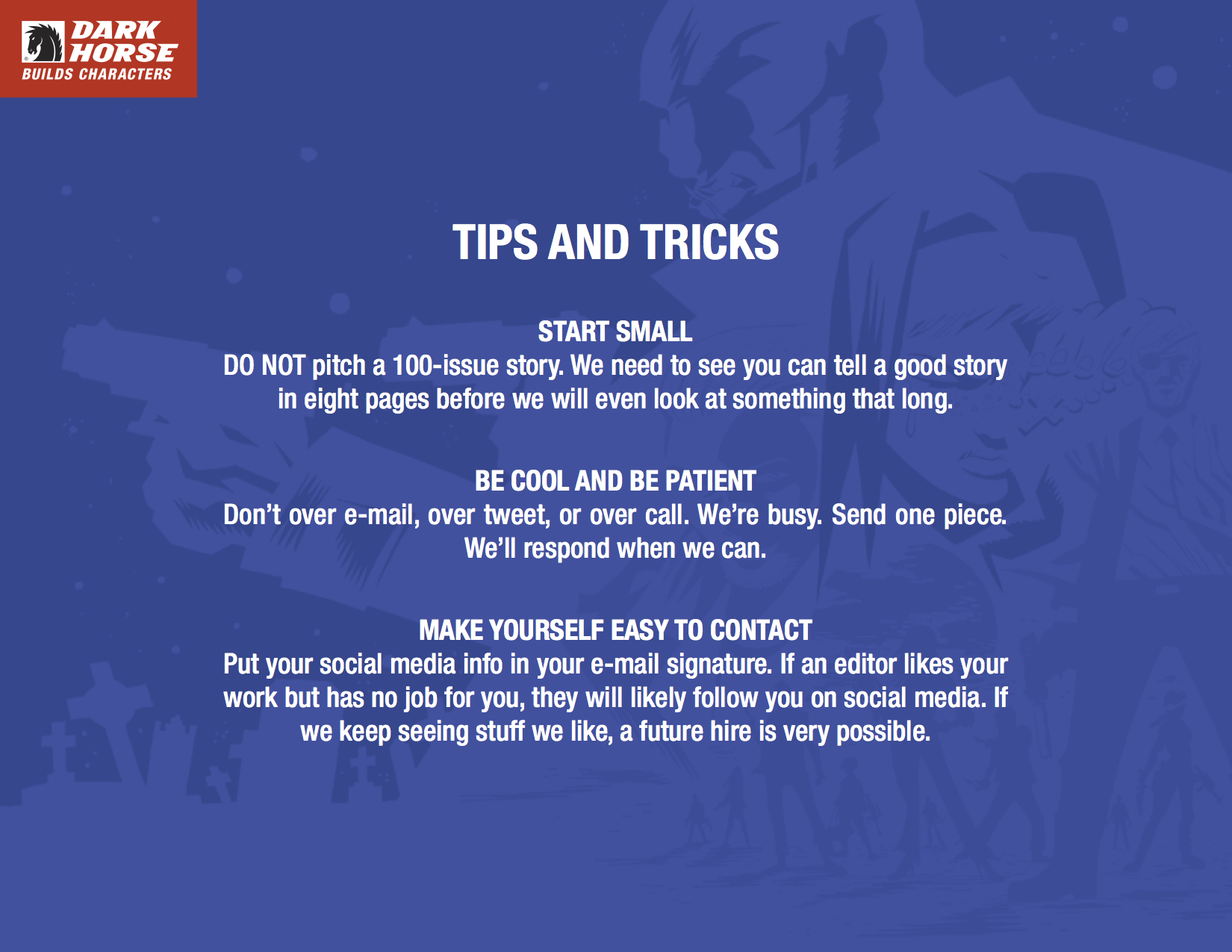
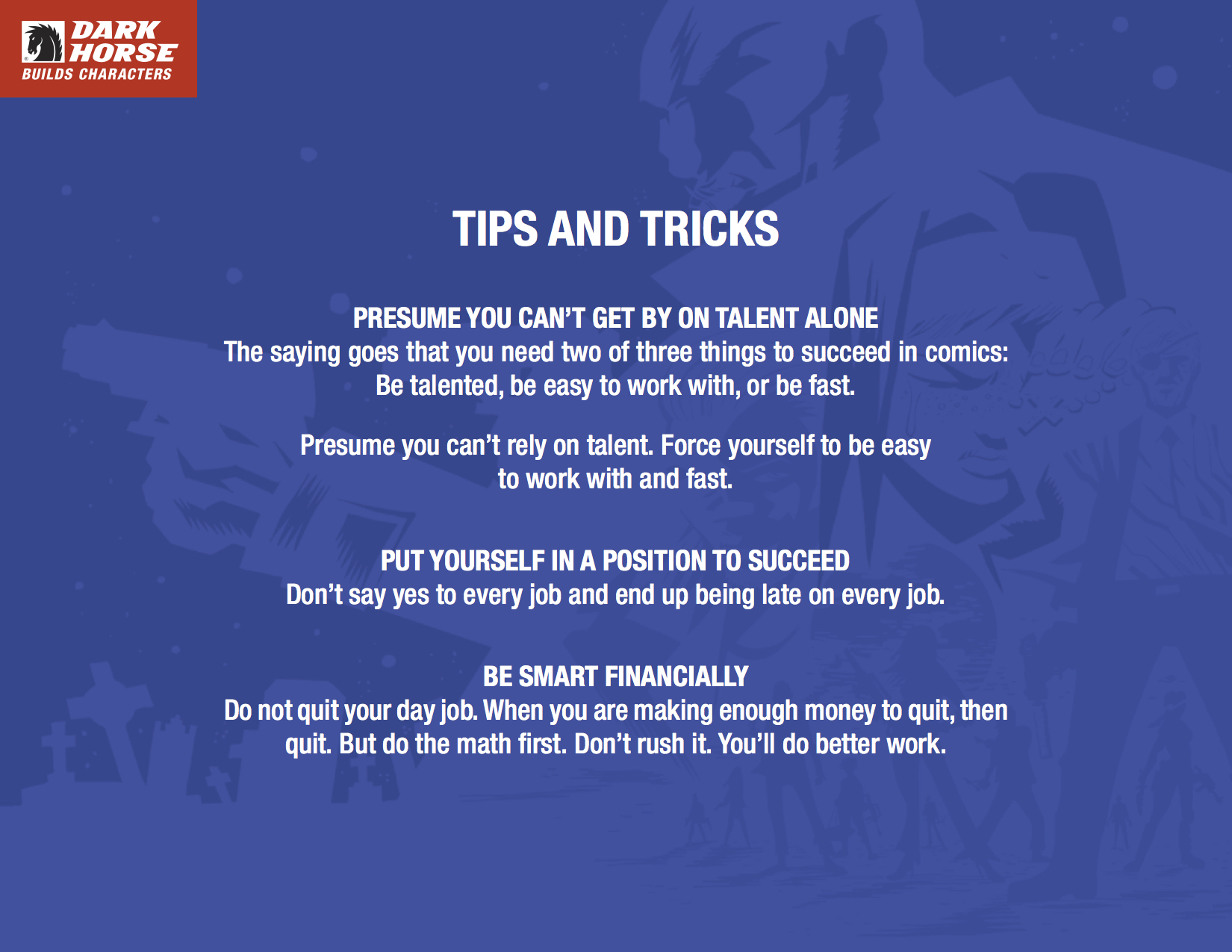
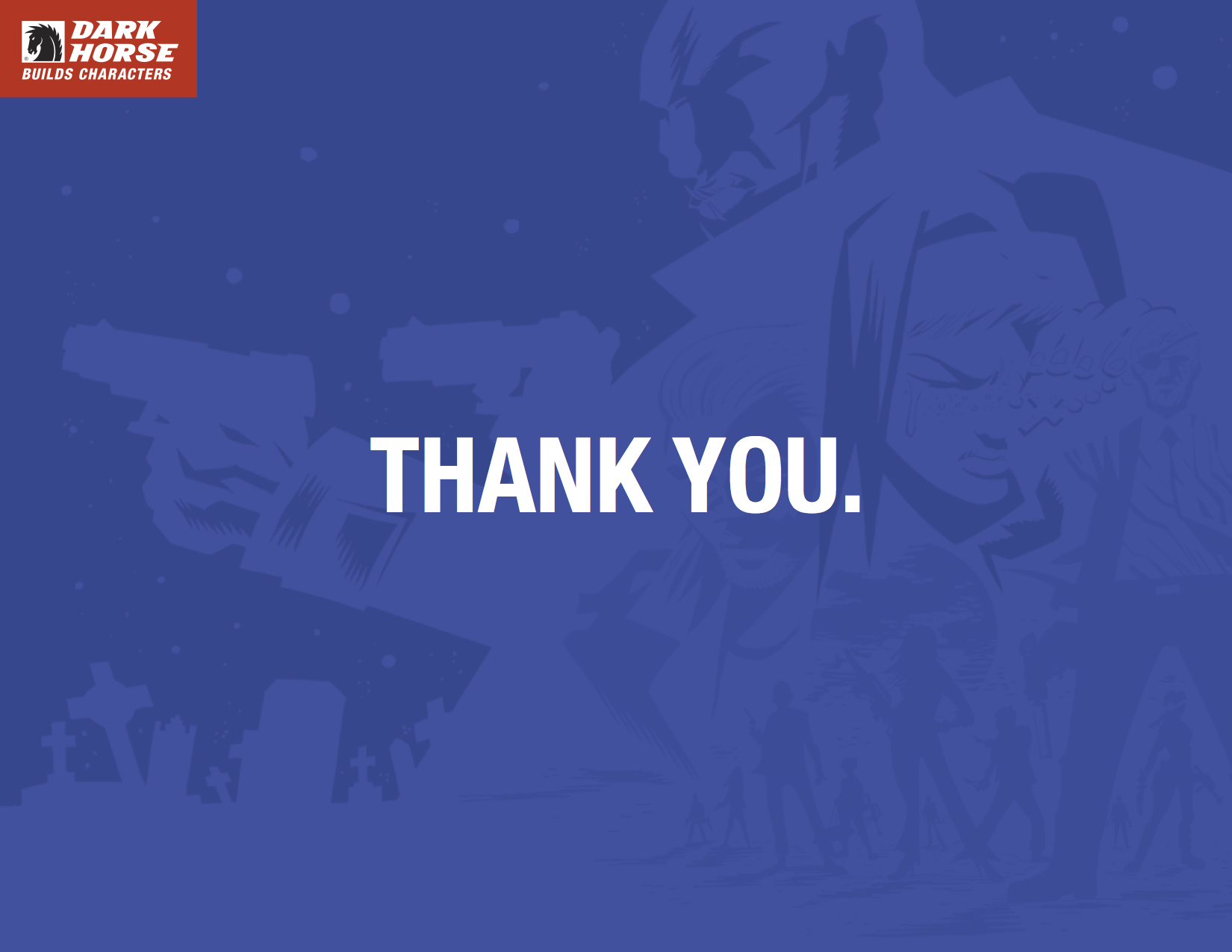

I have been working on my arts and entertainment goals since going to college, maybe when I was fascinated with the art of persuasion. My major was Communication ever since being denied a film major, I figured I’d take the back door. After completing an original superhero scripted trilogy, I found my way into writing graphic novels, and creating a whole new comic universe.
Thank you for this article!
I’ve been working on my art and comic book career slowly for about five years now. I started being serious when I lost a job and during my unemployment, I FINALLY decided to make my art a priority. Entered a local comic book art contest, started a personal project, then met my current collaborators. Since then I’ve attended a number of small indie cons, self-published not only comics but a kid’s book as well. My art has steadily improved to the point that now I’m part of a weekly art blog on a major comics website (the line it is drawn) and I’m starting to get noticed at cons.
I’ve often worried if I’m doing things “right” and your article is a big help in figuring that out.
-G